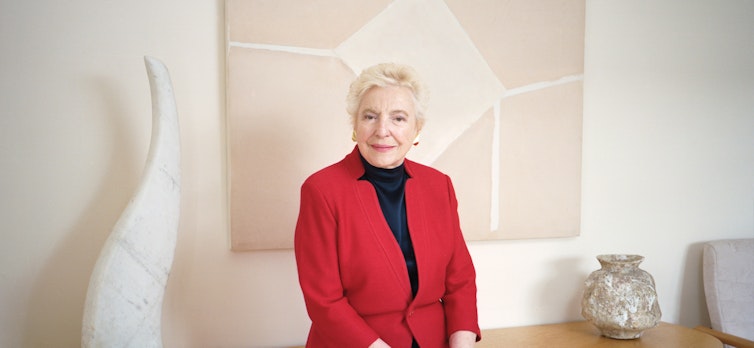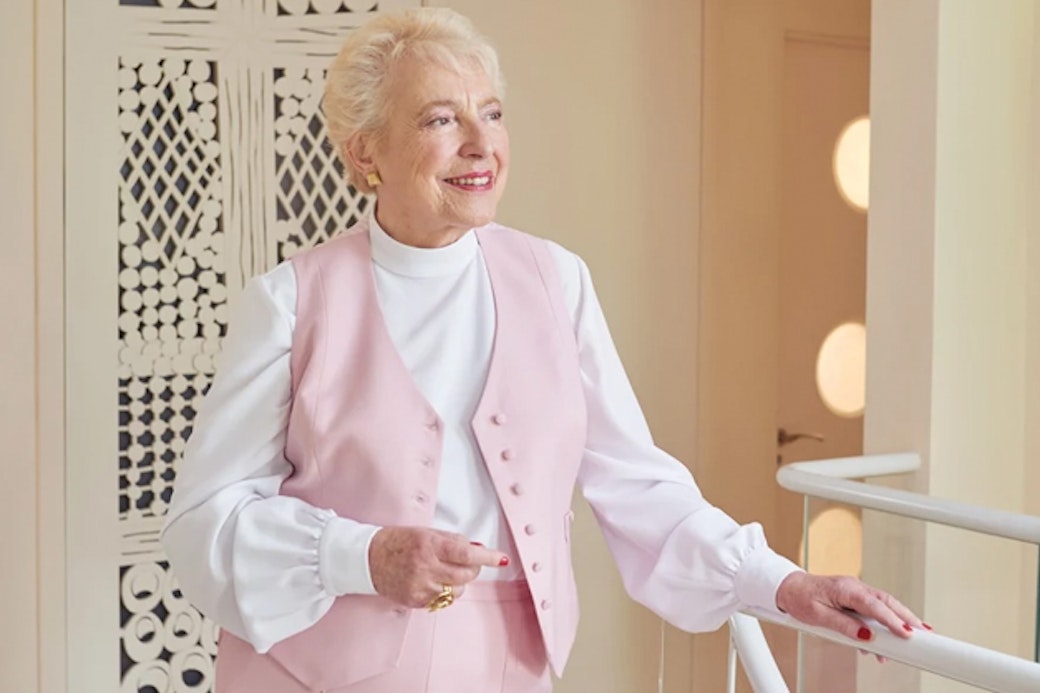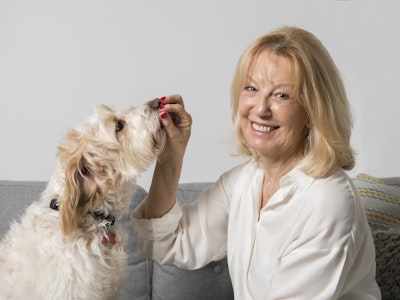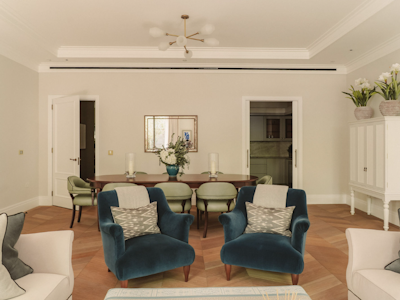Later Life Stories – The Philanthropist

I don’t think that I’m ready to get old yet because I’m so busy living. I keep my energy levels up and I live sensibly. I don’t drink apart from the odd glass of champagne and I eat well. I still swim, but very sedately.
I was born in 1933 in Germany but came to the UK, aged five, as a Kindertransport refugee. I was raised by foster parents in the Midlands and Welsh Borders. I used to have terrible depression caused by survivor guilt but it has faded. As I’ve become older, the problems that I’ve had with mental health have just disappeared.
At school, I found I had a flair for maths. But because women didn’t really do sciences at university back then, I went to work in computing at the Post Office. When, inevitably, I hit the glass ceiling, I founded my own company called Freelance Programmers in 1962. It was pretty radical. We employed virtually all women – and they mostly worked from home. The programs were written on paper and mailed in.
This was when I started calling myself “Steve”. When I would send letters to potential clients, I found they were far more likely to give me work if they thought they were dealing with a man.
I don’t think that I’m ready to get old yet because I’m so busy living.
I floated the company in the early 1990s and I became wealthy. But I shared the proceeds from the IPO with my staff, creating 70 millionaires.
I retired from the business in 1993 and the wealth allowed me to devote my “retirement” – I still work seven days a week – to giving something back to society. My son, who died in 1998, was autistic and I have founded three charities focused on the condition. They’re all quite different. Kingwood Trust looks after 118 people in long-term care. It is also involved with another 25 people with Asperger’s Syndrome. They can live by themselves but we spend one day a week with them.
The second, Prior’s Court, is a residential school for autistic children and employs more than 600 people. The third charity, Autistica, is focused on autism research. All three are what really keeps me going. They allow me to spend time with young people and I enjoy working with autistic children.
To some people, this might not seem very attractive but I get enormous pleasure seeing them progress.
I also love using new technology. We’re currently using a robot that will speak only if you make eye contact to help teach them.
I probably do about six hours a day and on the weekend I catch up with all the things that I haven’t done properly during the week.

My work-life balance has never really been appropriate but I enjoy work so much. I don’t think I’ll ever retire. When I first met the physicist Stephen Hawking, who has motor neurone disease, he had movement and I remember we shook hands. Now that’s all gone and he has a purely cerebral life. But he’s still cracking jokes — even if they’re slower to come – and he’s still offering important insights. So if he can keep going, the rest of us should try.
I was recently with a group of young women and we were talking about self-awareness. They asked me how old I was when I began to feel confident. I thought very carefully and I replied my mid-50s. They were appalled. I explained that in my 30s and 40s I was struggling financially and working very hard and then, somehow, in my mid-50s I began to feel comfortable to in my own shoes. You stop fighting for “I wish I were this” or “I wish I could do that”.
Yet while some things, like worrying about one’s looks, become muted, I think passions also intensify. I am much more focused now, and always think: “I’ve got to get this done, I’ve got to understand this, because I may not have much time.”
Find Us
2 Dovehouse Street
London, SW3 6BF
020 4549 8000
Auriens is a member of ARCO, which represents Integrated Retirement Communities in Great Britain. As an ‘Approved Operator’, Auriens aims to comply at all times with the requirements of the ARCO Consumer Code.






